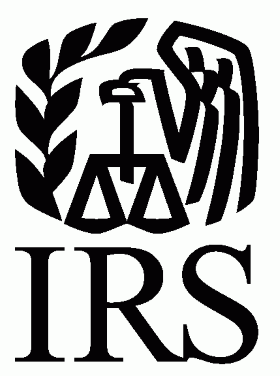Unless you’ve been hiding under a rock, you’ve probably heard about the battle between the President and Congress over funding for a southern border wall. The government “shutdown” created by the impasse has created a lot of uncertainty about many government-provided services.
Tax planning – Why is this year any different?
Zinner & Co. Tax Team Taxes - Corporate & Business , Taxes - Individual , deductions , income tax , Tax Cuts and Jobs Act of 2017Every year at this time, you start to hear more about the importance of year-end income tax planning in radio and television commentary. For many people with more complex businesses or investments, the beginning of the 4th quarter of the year signals the time to start to organize their tax documents and to set-up an appointment with their advisors to review results.
This year is different! This year, tax planning should be important to everyone, not just for those that have complex tax situations. The implementation of the Tax Cuts and Jobs Act of 2017 has impacted every taxpayer. While we have all heard about it, not everyone has an applied working knowledge of what the impact will be in the first annual income tax filing season, which begins in about three months.
Additional guidance issued relating to Section 199A pass-through deduction
Zinner & Co. Tax Department Taxes - Corporate & Business , Tax Cuts and Jobs Act of 2017Recently, proposed regulations were issued to provide some clarity concerning the new Section 199A deduction.
As part of the Tax Cuts and Jobs Act, which became effective as of the beginning of this year, this new deduction generally provides a 20 percent deduction for a pass-through businesses (primarily partnerships and LLCs taxed as partnerships, S Corporations, Sole Proprietorships and single member LLCs) that generate Qualified Business Income (QBI). This deduction is taken at the individual level and is allowable after one takes the greater of their itemized deductions or the standard deduction.
QBI does not include wages earned by an employee, guaranteed payments paid to a partner or reasonable compensation paid to an S Corporation shareholder.
Will the tariffs on Chinese imports hurt my business?
Eric James Taxes - Corporate & Business , Business - Management, Issues & ConcernsA primer on how to navigate the changes
In the past few months, phrases like “tariffs on Chinese imports” and “trade war with China” have been floating around in the news. The government levied a 25 percent tariff on over $50 billion of products imported from China.
Groundbreaking Sales & Use Tax Case Decided by the Supreme Court
Zinner & Co. Taxes - Corporate & Business , Taxes - Planning, Rules and Returns , Taxes - Individual , taxesOn June 21, the Supreme Court handed down a landmark decision in South Dakota vs. Wayfair (“Wayfair”). The fallout of this decision will significantly change the way online vendors handle sales and use (“S&U”) tax for out-of-state consumers going forward. It will, therefore, also affect online consumers. Are you impacted!?
No tax deductions for business entertaining
Zinner & Co. Tax Team Taxes - Corporate & Business , Business - Management, Issues & Concerns , Tax Cuts and Jobs Act of 2017The good news is that the Tax Cuts and Jobs Act of 2017 lowered corporate tax rates from a graduated schedule that reached 35 percent to a 21 percent flat rate. The bad news? Many business expenses are no longer tax deductible. That list includes all outlays that might be considered entertainment or recreation.
As of 2018, tickets to sports events cannot be deducted, even if you walk away from the game with a new client or a lucrative contract. The same is true if you treat a prospect to seats at a Broadway play or take a valued vendor out for a round of golf. Those outlays will be true costs for business owners without any tax relief.
Drilling down
Does that mean that you should drop all your season tickets supporting local teams? Cancel club memberships? Pack away your putter and your tennis racquet? Before taking any actions in this area, take a breath and crunch some numbers.
Fraudulent Filers Keep Tax-return Identity Theft as One of the IRS' "Dirty Dozen" Scams
Zinner & Co. Tax Department fraud , Taxes - Corporate & Business , Taxes - Planning, Rules and Returns , Taxes - IndividualEven though reports of tax-related identity theft have declined markedly in recent years, the Internal Revenue Service warns that this practice is still widespread and remains serious enough to earn a spot on the agency’s annual “Dirty Dozen” list of tax scams.
The Dirty Dozen is compiled each year by the IRS and outlines a variety of common scams taxpayers may encounter any time during the year. Many of these cons peak during filing season as people prepare their tax returns.Tax-related identity theft occurs when someone uses a stolen Social Security number or Individual Taxpayer Identification Number (ITIN) to file a fraudulent tax return claiming a refund.
IRS Requires Taxpayers to Validate ID
Zinner & Co. Tax Department fraud , Brett W. Neate , Taxes - Corporate & Business , Taxes - Planning, Rules and Returns , Taxes - Individual , IRSThe IRS recently announced additional requirements for taxpayers and tax professionals to verify their identities when they call as part of security efforts.
Taxpayers and professionals should have the following documents ready when they call:
- Social Security numbers and birth dates for those who were named on the tax return in question
- An Individual Taxpayer Identification Number (ITIN) letter if the taxpayer has one in lieu of a Social Security number (SSN)
- Filing status – Single, Head of Household, Married Filing Joint or Married Filing Separate
- The prior-year tax return. Telephone assistors may need to verify taxpayer identity with information from the return before answering certain questions
- A copy of the tax return in question
- Any IRS letters or notices received by the taxpayer
Scam Alert: Fraudsters Posing as Taxpayer Advocacy Panel
Zinner & Co. Tax Department Brett W. Neate , Taxes - Corporate & Business , Taxes - Planning, Rules and Returns , Business - Management, Issues & Concerns , Taxes - Individual , tax , cybersecurity , IRSSome taxpayers receive emails that appear to be from the Taxpayer Advocacy Panel (TAP) about a tax refund. These emails are a phishing scam, trying to trick victims into providing personal and financial information.
Do not respond or click any link. If you receive this scam, forward it to phishing@irs.gov and note that it seems to be a scam phishing for your information.
TAP is a volunteer board that advises the IRS on systemic issues affecting taxpayers. It never requests, and does not have access to, any taxpayer’s personal and financial information.
The Rules Have Changed for Attending the Game (and Other Entertainment Events)
Zinner & Co. Tax Department Taxes - Corporate & Business , deductionsThe recent enactment of the Tax Cuts and Jobs Act (TCJA) brought many changes to how individuals and businesses are affected by our tax system.
Among the deductions affected was the deduction for meals and entertainment incurred in the course of operating a business. Prior to the enactment of the TCJA, which took effect for many provisions on January 1, the allowable deduction for meals and entertainment expenses was capped at 50% of the allowable amount of such costs that were incurred. Under the old law, no deduction was allowable unless the cost was either directly related to or associated with the conduct of business.
About Us

Since 1938, Zinner has counseled individuals and businesses from start-up to succession. At Zinner, we strive to ensure we understand your business and recognize threats that could impact your financial situation.
Recent Blog Posts
Categories
- 1031 Exchange (2)
- 401k (2)
- 529 plan (4)
- ABLE Act (1)
- account systems (3)
- accounting (8)
- Affordable Care Act (8)
- alimony (2)
- American Rescue Plan Act (1)
- Ask the Expert (5)
- Audit and Assurance Department (13)
- audits (8)
- Bank Secrecy Act (1)
- banks (1)
- Barbara Theofilos (6)
- Beneficial Ownership Information (1)
- Bitcoin (1)
- block chain (2)
- BOI (3)
- Bookkeeping (1)
- Brett W. Neate (28)
- budgets (1)
- Bureau of Worker's Compensation (12)
- Business - Management, Issues & Concerns (50)
- business income deduction (3)
- business succession (7)
- business travel expense (3)
- business valuation (5)
- capital gains (2)
- careers (7)
- cash flow (2)
- Child Tax Credit (2)
- Chris Valponi (8)
- City of Cleveland (1)
- Cleveland COVID-19 Rapid Response Fund (1)
- Cleveland Rape Crisis Center (2)
- college (3)
- Community (24)
- Compliance (1)
- Coronavirus (24)
- Corporate Transparency Act (1)
- COVID-19 (30)
- Credit card fraud (5)
- credit reporting (2)
- cryptocurrency (2)
- CTA (2)
- cybersecurity (16)
- dead (1)
- DeAnna Alger (6)
- death (2)
- debt (4)
- deductions (14)
- Deferring Tax Payments (4)
- Department of Job and Family Services (2)
- depreciation (1)
- Digital Tax Payment (1)
- divorce (4)
- DOMA (3)
- Economic Impact Payments (2)
- Economic Injury Disaster Loan (4)
- education (8)
- EIDL (1)
- electronic filing (4)
- Electronic Tax Payments (2)
- Emergency Working Capital Program (1)
- employee benefit plan auditor (1)
- Employee Leave (2)
- Employee or Independent Contractor (6)
- Employee Retention Credit (3)
- employment (2)
- ERC (3)
- Eric James (8)
- Estates, Gifts & Trusts (48)
- expenses (5)
- Families First Coronavirus Response Act (2)
- FASB (1)
- FBAR (1)
- FDIC coverage (1)
- Federal Assistance (4)
- filing (3)
- financial planning (8)
- Financial Planning - College (9)
- financing (3)
- Firm news (119)
- first responders (1)
- FMLA (1)
- foreign assets (3)
- fraud (38)
- FSA (1)
- fundraising (9)
- Gabe Adler (1)
- gift tax (5)
- HDHP (2)
- health care (3)
- home (2)
- home office (1)
- Howard Kass (2)
- HRA (1)
- HSA (5)
- identity theft (32)
- income (1)
- income tax (57)
- independent contractor (1)
- Inflation (1)
- Insurance (7)
- internal control (4)
- international (2)
- Intuit (1)
- investments (4)
- IRS (88)
- jobs (5)
- John Husted (1)
- K-1 (1)
- Laura Haines (3)
- Layoff (2)
- Layoffs (1)
- leadership (3)
- lease accounting standards (1)
- life insurance (1)
- LLC (3)
- Loans (2)
- longevity income annuities (1)
- Lorenzo's Dog Training (1)
- Magic of Lights (1)
- management advisory (3)
- manufacturing (2)
- Matt Szydlowski (3)
- medical (7)
- Medicare (2)
- mergers and acquisitions (1)
- Mike DeWine (2)
- Millennial Concepts (2)
- minimum wage (1)
- NAIOP (1)
- National Defense Act (1)
- non-profit reporting (10)
- non-profits (38)
- not-for-profit (26)
- ODJFS (1)
- office (1)
- ohio (13)
- Ohio business owners (18)
- Ohio Department of Jobs and Family Services (3)
- Ohio Department of Taxation (3)
- Ohio Incumbent Workforce Training Voucher Program (1)
- Online Tax Payment (3)
- Operations (2)
- OPERS (1)
- owners of foreign entities (1)
- partnerships (5)
- passwords (1)
- Paycheck Protection Program (9)
- payroll (8)
- penalties (3)
- pension (2)
- personal finance (2)
- planning (4)
- ppp (7)
- Productivity (5)
- Qualified Business Income (1)
- quickbooks (10)
- real estate (14)
- record retention (2)
- records (2)
- Reporting (1)
- Republican National Convention (1)
- Retirement Planning & IRAs (53)
- Richard Huszai, CPA (5)
- RITA (1)
- Robin Baum (6)
- RRF (1)
- S Corporation (1)
- SALT (8)
- SBA (8)
- scams (12)
- SECURE 2.0 Act (1)
- security (6)
- SharedWorks (1)
- Shutdown (3)
- Silver Linings (9)
- simplified employee pension (1)
- Small Business (5)
- SMB (12)
- Social Media (1)
- social security (4)
- Speaker Series (2)
- spouse (1)
- start ups (8)
- Stay at Home Order (3)
- Steven Mnuchin (1)
- Sue Krantz (6)
- SVOG (1)
- tangible property (1)
- tax (27)
- tax avoidance (12)
- Tax Credit (7)
- Tax Cuts and Jobs Act of 2017 (31)
- Tax Exempt (1)
- Tax Holiday (1)
- Tax Interns (2)
- tax services (28)
- taxes (45)
- Taxes - Corporate & Business (104)
- Taxes - Individual (117)
- Taxes - Planning, Rules and Returns (188)
- TechCred (1)
- technology (7)
- The CARES Act (6)
- The SOURCE (1)
- tiag (3)
- transaction advisory (2)
- Treasury Department (5)
- tuition (3)
- U.S. Department of the Treasury (1)
- U.S. Small Business Administration (6)
- Unclaimed Funds (1)
- Unemployment Benefits (4)
- withdrawls (2)
- withholding (6)
- Workers Comp Billing Changes (1)
- Zinner & Co. (32)
- Zinner News (30)












